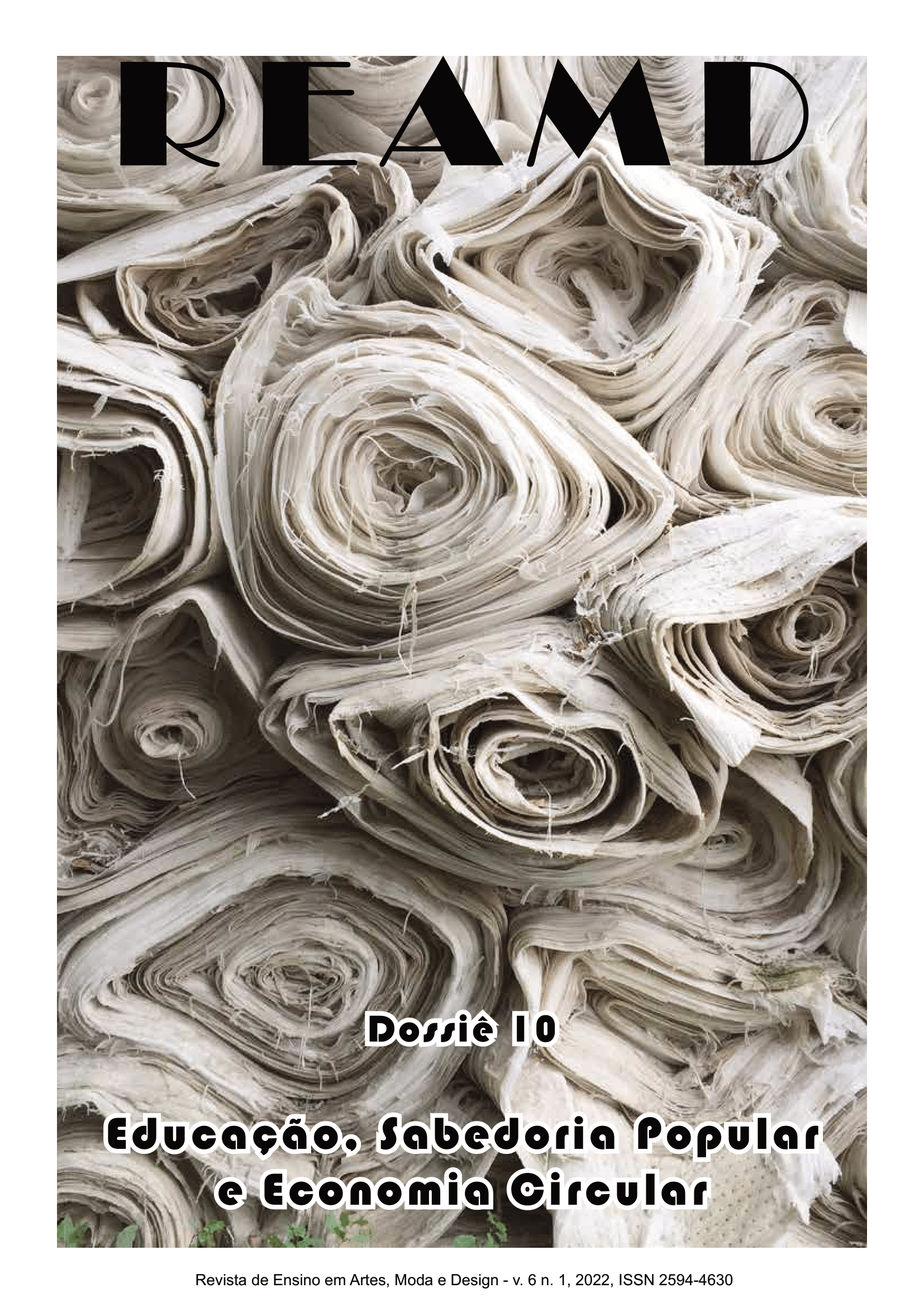Greenwashing and the mith of sustainability in fashion: alienation and commodity fetishism
DOI:
https://doi.org/10.5965/25944630612022e0131Keywords:
greenwashing, sustainability myth, commodity fetishismAbstract
The sustainability myth, along with greenwashing, are alienation tools used by the market in order to divert attention from the problems caused by the capitalist mode of production. The approach of the theme in this article reveals the contradictions inherent to the current socioeconomic form, especially in reference of the fashion spectrum, through the articulation of the concepts of commodity fetishism, alienation, use value and metabolic rift. As objective, is sought the intersection of discourses around sustainability in fashion through a socio-political approach in bibliographic review of theoretical specialists that help to demystify the capitalist mode of production. As result of the research, it is possible to demonstrate the insufficiency and contradictions of the narratives carried out by the fashion market, and the capitalist system in general, also identifying greenwashing practices in addition to the use of the sustainability myth as an instrument for validating predatory practices of capitalism as well in reference of the environment as the society.
Downloads
References
CALANCA, Daniela. História social da moda. Editora Senac São Paulo: São Paulo, 2011.
ENGELS, Friedrich. Anti-Dühring. Paz e Terra: Rio de Janeiro, 1979.
FERNANDES, Sabrina. Se quiser mudar o mundo: um guia político para quem se importa. Planeta: São Paulo, 2020.
FOSTER, John Bellamy. Marx's Ecology: Materialism and Nature. Monthly Review Press: New York, 2000.
HARVEY, David. 17 contradições e o fim do capitalismo. Boitempo Editorial: São Paulo, 2016.
KATZ, Cindi. Whose Nature, Whose Culture? Private Productions of Space and the Preservation of Nature. In B. Braun and N. Castree (eds.) Remaking Reality: Nature at the Millennium. Routledge: London, 1998.
LIPOVETSKY, Gilles. O Império do efêmero – a moda e seus destinos na sociedade moderna. São Paulo: Companhia das letras, 1987.
LÖWY, Michael. O que é ecossocialismo? Editora Cortez: São Paulo, 2014.
LÖWY, Michael. Thirteen theses on the imminent ecological catastrophe and the (revolutionary) means of averting it. Disponível em: https://internationalviewpoint.org/spip.php?article6391&fbclid=IwAR204os5TZzeQhUMuN4YQZjtjQA2f5j_nqVhBhqgqUkdj_RQ-D114CjJR3M. Acesso em 24/01/2021.
LÖWY, Michel; DUMÉNIL, Gerard; RENAULT, Emmanuel. 100 palavras do marxismo. Editora Cortez: São Paulo, 2015)
MARX. O capital: Crítica da economia política: livro I: O processo de produção do capital. Boitempo Editorial: São Paulo, 2013.
MARX, Karl. O capital: crítica da economia política: livro III: o processo global da acumulação capitalista. Boitempo Editorial: São Paulo, 2017.
NETTO, José Paulo. Introdução ao estudo do método de Marx. Editora Expressão Popular: São Paulo, 2011.
SÁ BARRETO, Eduardo. Marx contra a fantasia “coaseana”: uma crítica ontológica ao fundamento teórico dos mercados de carbono. Marx e o Marxismo, v. 3, n. 5, p. 1–16, 2015.
SÁ BARRETO, Eduardo. O capital na estufa: Para a crítica da economia das mudanças climáticas. Consequência: Rio de Janeiro, 2018.
Downloads
Published
How to Cite
Issue
Section
License
Copyright (c) 2022 Luciana Paula Benetti, M. Sílvia Barros de Held

This work is licensed under a Creative Commons Attribution 4.0 International License.
- Authors retain copyright and grant the journal the right of first publication, with work simultaneously licensed under the Creative Commons Attribution 4.0 International License, which allows for:
1. Share — copy and redistribute the material in any medium or format for any purpose, even commercially.
2. Adapt — remix, transform, and build upon the material for any purpose, even commercially.
The licensor cannot revoke these freedoms as long as you follow the license terms.Under the following terms:
1. Attribution — You must give appropriate credit, provide a link to the license, and indicate if changes were made. You may do so in any reasonable manner, but not in any way that suggests the licensor endorses you or your use.
2. No additional restrictions — You may not apply legal terms or technological measures that legally restrict others from doing anything the license permits. -
Plagiarism, in all its forms, constitutes unethical publication behavior and is unacceptable. This magazine uses iThenticate similarity control software.






